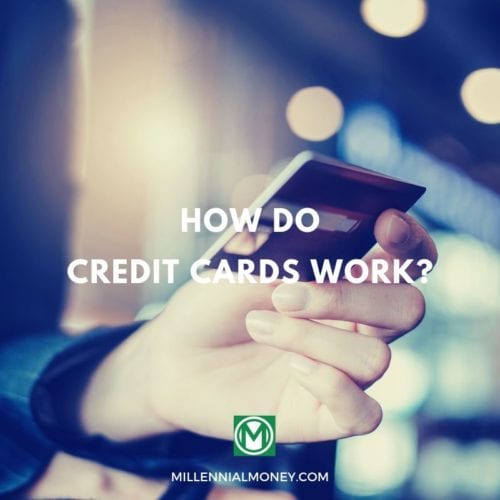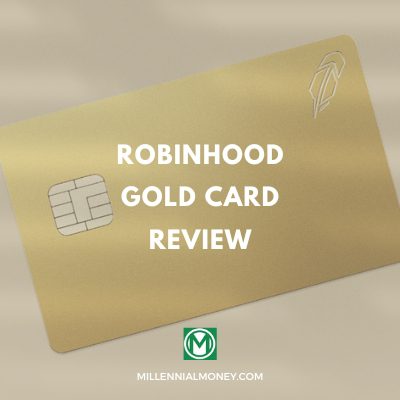Credit cards seem to be the easiest way to start your financial history and most of us have access to one, or several of them.
They are essential in order to start credit history and the convenience of using them has overshadowed the fact that misusing credit cards can become a big problem.
Credit Card debt is pretty common and according to the latest research, an average American owes more than $6,000 in credit card debt. The amount varies from state to state depending on the average income and monthly living costs.
Paying off credit card debt is not an easy process and it requires a solid plan and tough discipline.
Let’s walk through the 5 best ways to get out of credit card debt and you can pick the best strategy for your situation.
5 Ways To Get Out Of Credit Card Debt
There are several ways to go about it and there is no right or wrong, as long as you are able to get out of debt.
The success of any of these strategies depends on your circumstances and your personality. One method might not work for everybody, so choose wisely.
Here are 5 proven strategies to get out of credit card debt:
1. Snowball Method
As the name suggests you go from smaller to bigger. Getting rid of small amounts gives you encouragement and motivation to go after the bigger ones. Once all the small payments are gone, most of your payment will be directed towards the highest loan.
The cash flow becomes better once all the smaller payments are done and you can go ahead and tackle the larger amounts.
This method might take you longer plus you might end up paying more in interest because your focus is to tackle the debts from “Smallest to Largest”.
2. The Avalanche Method
The Avalanche Method is the opposite of the Snowball Method. In this case, you pay off the card with the highest interest amount first.
This “Debt Stacking” method is ideal if you want to go faster in the debt elimination process. When you are paying the high-interest rate debts first, all the savings can go towards the next debt pretty quickly.
3. Debt Consolidation
This method is ideal if you have good credit. Debt Consolidation means “you can roll your multiple old debts into a new single one with a lower interest rate”.
You can opt-in for any of the following four methods.
- Balance transfer cards
- Personal loans
- Home equity loans/lines of credit
- 401(k) Loans
The first two are the most suggested because they do not put too much risk on your financial future. You can easily get approved for the 0% Balance transfer card if you have excellent credit. Personal loans are also a good option and you can get them with an average credit score.
Home equity loans and 401(k) loans are termed as high risk when it comes to debt consolidation.
You are putting your retirement funds and your home at risk if you pick any of these two options.
These two should be the last resort in case there is absolutely no other way.
4. Debt Management Plans
If none of the above options seem to work for you, there are some other options too.
You can either talk to your creditors and try to negotiate the payment terms and timeline with them. They might be able to help you if you have been with them for a long time.
Bankruptcy is a bit intense approach but sometimes there is no other way. You will have to restructure your debts into a payment plan that lasts for 3-5 years. It will definitely stay on your credit for up to 10 years. Be mindful that bankruptcy can’t erase debts such as student loans and tax debt.
There is an option to choose Debt Settlement in order to eliminate credit card debt. in this case, the creditor agrees to accept less than the amount you owe. It is the least suggested option and you have to hire a debt settlement company to negotiate with your creditors. You are at risk of destroying your credit and it can be a costly and long process.
5. Lifestyle Change
Now that we have talked about all the different ways to eliminate your credit card debt, we are down to the most practical and actionable strategy to get rid of credit card debt.
I am talking about a major transition in the thought process if you are embarking on this journey.
There are certain life changes that need to happen before you can actually commit to this goal.
With the right option and proper attitude, you can kill it and start a new life with a better financial outlook.
How Can I Eliminate Credit Card Debt?
Here are some of the main things you can pay attention to if you want to eliminate credit card debt.
Start Budgeting
This is the base of any successful financial model. Spending some time to decide how much you actually spend on your necessities is very important for all of us. Follow through and start a habit that will lead to life-long benefits.
Evaluate Your Spending
This can very well be an extension of the budgeting process that I have discussed above. Have a clear realization of what you “NEED” and what you “WANT”. Cut out all the unnecessary expenses from your life and try to stick with the basics.
Try For Minimalism
Once you have a clear realization of what you really need, it would be very easy to practice this concept. Get rid of all the unused stuff from your life will help you to think better and it might bring in some cash.
Stick To The Cash
This one thing is a major game-changer when you are on a journey to eliminate debt. This habit will make sure you only spend what you have and trust me, it is much harder to spend money when you can actually see it going out of your wallet as compared to when it was just going on your credit card.
Find A Good Support System
Most people are unsuccessful in this process because they lack encouragement from the people close to them. Cut cords with the group of people who are not appreciating your effort towards a better life. Surround yourself with people who agree with this mindset and are willing to morally support you when you need it.
Be Creative
Being on the debt-elimination journey provides you an opportunity to be creative in every aspect of your life. Look for free activities for entertainment and try cooking at home with a budget-friendly meal plan.
What’s The Fastest Way To Get Rid of Credit Card Debt?
We have gone over several ways to eliminate credit card debt and if I answer it on a technical level, it would definitely be the Avalanche Method.
That being said, I want to emphasize that it might not be an option for everybody.
For some, Debt settlement might be a viable option as the creditors would be off their back with the least amount. But at the same time, credit score goes down the drain.
For some bankruptcy is fine as many huge companies file for bankruptcy every now and then.
It really depends on what you are comfortable with and how far are you looking at your financial goals.
Is it possible to get out of credit card debt without ruining my credit score?
Yes! it is possible. You can do it with all the above-discussed methods other than the Bankruptcy and Debt Settlement method.
Try to opt in the method where you can be most efficient depending on your motivation and cash flow.
Always consult a financial expert when you are making big decisions like that because they can guide you the best, depending on your current financial standing.
Why Use Credit Cards At All?
It is not possible to deny the importance of credit cards at the present time. No matter how much you want to avoid them, you need them in order to function on a daily basis.
Small things like renting a car or booking a hotel room could become difficult without a credit card.
Here are some facts that support the fact that you should get a credit card.
- Applying for a new credit card usually comes with bonuses and rewards.
- Many credit cards have cash back programs and you get money back on the purchases you need to make anyways.
- If you are a traveler, credit cards can be very beneficial in collecting frequent flyer miles.
- There are many rewards and points that credit card companies offer. You can redeem these points in the form of gift cards or buy items from the credit card company’s catalog.
- Most credit card companies offer awesome insurances and warranties which can be a big attraction for consumers.
- Credit cards are accepted universally and the fact that you don’t have to carry cash everywhere is a big plus.
- There are times when you need protection from a vendor/retailer in case of bad service and if you are using your credit card, you can withhold the payment until your damage is settled.
- In case of fraudulent activity, you do not lose money right away as you would if it was your debit card. As long as you notify your bank, they can stop payments and mostly they resolve the matter themselves.
All the above-mentioned points are quite valid and support the idea of having a credit card.
Now let us look at the other side of the picture where you will learn how credit cards can harm your financial well-being if not handled properly.
The Downside of Having A Credit Card
These tiny careless mistakes can lead to much bigger financial turmoil.
- Credit Cards can be dangerous because it does not support the idea of budgeting. The freedom of being able to buy anything at any particular time can make you an impulse buyer. Self-control is out of the question if you are hooked on using your credit card.
- Credit Cards come with high-interest rates and you are paying way more than the original cost of your purchases.
- Most credit card companies offer you an attractive introductory rate and if you do not pay attention or pay the balance in full, that rate can go really high pretty quickly.
- Extensive use of credit cards can lead to bankruptcy which is the worse when it comes to financial stability.
The result of all this can confront us in the form of huge debt. The late payments and higher interest rates add up to the actual amount and this lump sum becomes a big chunk.
Getting Out Of Credit Card Debt Is Possible
With this post, my hope is to awaken all of you to the fact that it is possible to save your credit score even if you have a substantial amount of debt.
Being in debt is indeed a problem but if you do not know how to get out of it, you are in for a bigger calamity.
Tackle your debt head-on and start a journey toward financial freedom.




Comments are closed.
Comments are closed here.